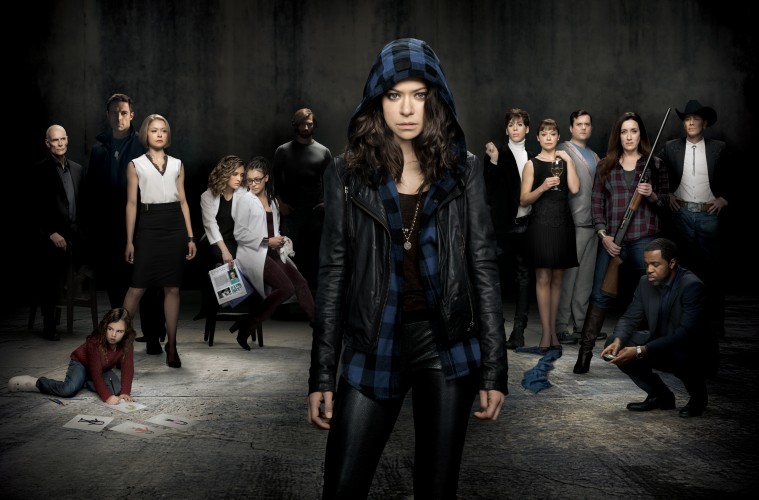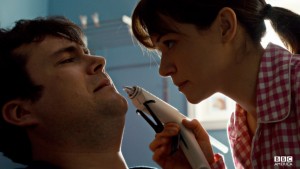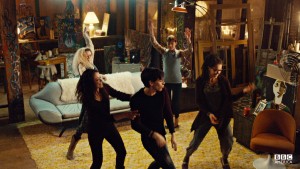Season three of Orphan Black premieres on April 18 on BBC America, and despite receiving rave reviews and a truckload of awards, it hasn’t yet found a mainstream audience. The show stars Tatiana Maslany, introduced as Sarah Manning, a con-woman and single mom who discovers she’s the subject of a human cloning experiment. If you’re not on the Orphan Black bandwagon yet, here’s why you should be watching.
Tatiana Maslany. That is all.
By the end of the second season, Tatiana Maslany is playing 12 characters, including Alison the soccer mom, Cosima the scientist, and Helena the crazy one. She slips into these characters effortlessly, and by the end of the first few episodes of season one, I really viewed them as different people. It isn’t as if I saw the Helena character and thought, “That’s Maslany wearing a blonde wig.” I saw Helena and thought, “That’s Helena. Period.” When punk-clone Sarah has to host a party as Alison, Maslany doesn’t just slip into her Alison affectation; she truly is portraying Sarah-as-Alison. Maslany won two Critics Choice Awards for her performances in Orphan Black, and she deserves them.
It’s a woman-driven action show
There hasn’t yet been a true female-oriented action show in the post-Buffy the Vampire Slayer era, and Orphan Black fills that niche and more. It’s not just Maslany’s Sarah kicking ass and taking names. Even if you put the clones aside, many of the most important players in Orphan Black are women, villains and protagonists alike. It isn’t a world devoid of men, but women are the driving force in this show. They exert their power and agency all while being multifaceted human beings.
So much spin off potential
Because there are so many characters, Orphan Black is sometimes like watching five shows in one. There’s a procedural aspect, when Sarah takes over the life of one of the deceased clones, Beth, who was a police officer. There’s a scientific drama, there’s horror, and there’s even a Desperate Housewives-esque dramedy. I would certainly watch Alison and Sarah’s club-kid foster brother Felix (played by Jordan Gavaris) team up to navigate the perils of nosy neighbors and hosting children’s birthday parties for an hour every week.
The special effects are insane
If you ever come out of your trance and realize that you’re actually watching Tatiana Maslany talk to three other versions of herself, you also realize that the special effects of Orphan Black are downright dazzling. The show doesn’t hesitate to put the clones in each other’s space, and they often touch, dance with, and fight each other. This isn’t Lindsay Lohan sitting three feet away from herself in The Parent Trap. The crew uses a combination of green screens, body doubles, tennis balls, and a high tech camera-mounting system called a Technodolly to achieve for what most shows would be a standard shot.
It doesn’t shy away from camp
The main focus of the show is on the ethics of genetic manipulation, and the topic can get heavy fast. Luckily, the producers learned early to leverage Maslany’s comedic talents and lighten things up. There’s a lot of zany life switching, and Maslany at one point has to act as Helena, acting as Sarah, acting as Beth. Sarah often acts as the straight-clone to Helena’s or Alison’s over-the-top antics. The off-the-rails plot combined with the quirks of each clone give Orphan Black a comic book feel.
If you’re looking for a new binge-worthy show with kickass female leads, Orphan Black is for you. Seasons one and two are available to stream on Amazon Prime Instant Video, and season three will air on BBC America on Saturdays beginning April 18 at 9/8c.
All images via BBC America.




